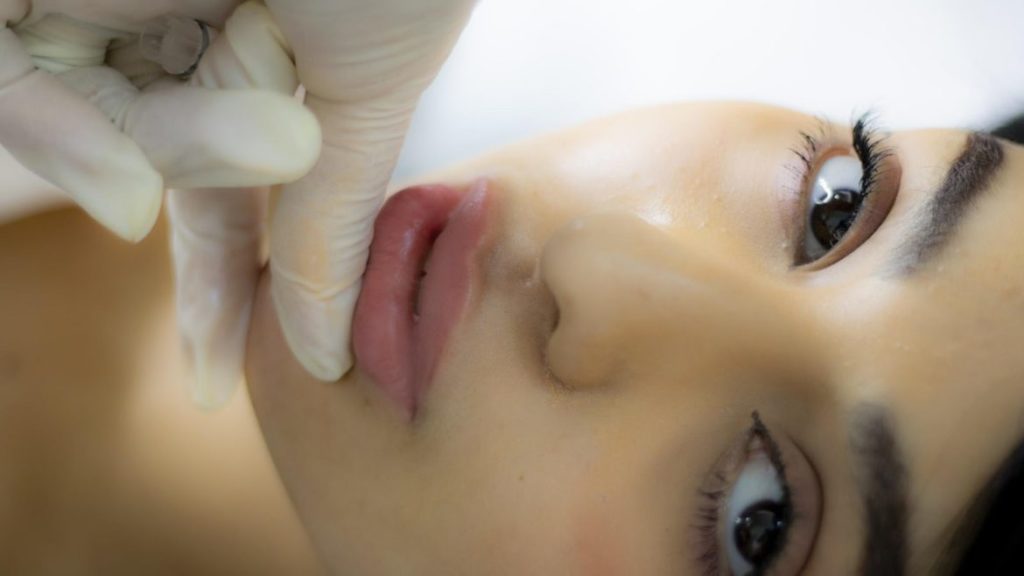 What You Should Know
What You Should Know
IF YOU ARE ONE OF THE THOUSANDS OF WOMEN who get injectable dermal fillers to smooth facial lines and wrinkles, reshape features, or lift sagging skin to achieve a more youthful look then take note: The Journal of Cosmetic Dermatology recently published a case report linking hypersensitivity reactions with the dermal filler hyaluronic acid (HA) to COVID-19 vaccinations. According to a number of sources, including Good Housekeeping magazine, “Following COVID-19 vaccinations, inflammatory side effects like redness and swelling have been found in some patients at sites of filler injections. The side effects are rare and easily managed with antihistamines, corticosteroids, or injections of hyaluronidase.”
What is HA?
Dermal filler hyaluronic acid fillers include Juvederm Ultra, Juvederm Ultra Plus, Perlane, Restylane, and Belotero. Dr. Shilpi Khetarpal a specialist in cosmetic dermatology at the Cleveland Clinic explains, “The majority of dermal fillers that we use are made out of hyaluronic acid and that is something that’s found in our skin. Over time—with age, sun, and genetics—we lose a certain amount of volume and hyaluronic acid in our skin. Dermal fillers make it possible to replace what we’ve lost. So, if someone wants to add a little more shape or plumpness to their lips or a little bit of fullness to their cheeks where they once had it, it’s replacing what they’ve lost. In doing this, it can make people look more youthful, more attractive, or just more natural—like a younger version of themselves.”
As Dr. Marisa Garshick, a dermatologist and clinical assistant professor of dermatology at New York-Presbyterian Weill Cornell Medical Center explains, “The discussion around the COVID-19 vaccines and fillers is related to reports of delayed inflammatory reactions that developed at sites of prior filler injections after receiving the COVID-19 vaccine, which appear as redness or swelling in the area,” Dr. Garshick explains. “This first came up in the clinical trial for the Moderna vaccine, where three participants among 15,184 recipients reported inflammatory reactions, thought to be related to fillers. We do not know how many other subjects in the trial had prior treatment with fillers and did not develop a reaction.”
Rare incidence of swelling
The Journal of Cosmetic Dermatology case report highlighted two incidences of swelling in patients with hyaluronic acid fillers that occurred after the Pfizer vaccine and two that occurred after the Moderna vaccine. “These cases document patients who had injectable filler as long as one year prior to their COVID vaccine and then developed inflammation and swelling in the areas of the filler within several days of receiving their vaccine,” explained Dr. Brooke Jackson, dermatologist and founder of Skin Wellness Dermatology Associates in Durham, North Carolina. “This is treatable and will resolve in time and with treatment, but it is important for patients to know that this can occur and to communicate with their physicians if it should happen so they can begin treatment.” Dr. Jackson further explains that inflammatory reactions to fillers are not unique to the COVID-19 vaccine. “This type of reaction has been seen in other vaccines, cases of the flu, dental procedures, and any time when your body’s immune system is in a heightened state.”
So far, the Johnson & Johnson jab has been reaction-free. “At this time, there have been no reports associated with the Johnson & Johnson vaccine,” Dr. Garshick says.
The Centers for Disease Control and Prevention (CDC) came out with guidelines in January, and they say that filler history, filler injection should not keep you from getting the vaccine. “I totally agree,” says Dr. Gilly Munavalli, a dermatologist in Charlotte, NC. If people experience swelling or tenderness at the site of the injection, “What’s important is to contact your physician,” he advises. “If you think you have a reaction, go in and let them help you.”

